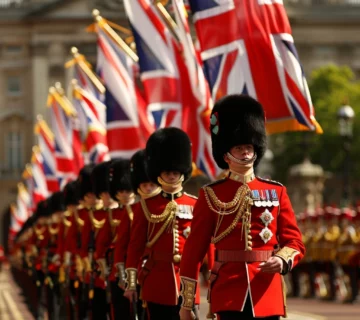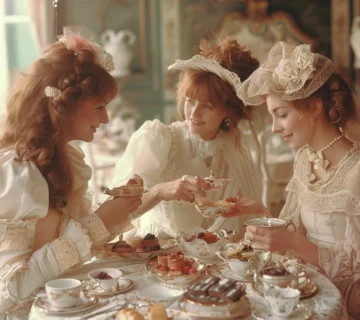Easter Good Friday in the United Kingdom holds a special place in the hearts of many, blending religious reverence with cultural traditions. This day, falling on the Friday before Easter Sunday, is commemorated with various customs, events, and activities across the country. It’s a time when the historical and contemporary significance of Easter intertwines, offering a unique glimpse into the UK’s rich tapestry of cultural heritage.
The Historical Roots of Easter Good Friday
Easter Good Friday’s origins are deeply embedded in Christian tradition, marking the crucifixion of Jesus Christ and his death at Calvary. In the UK, this day has been observed for centuries, with each era adding its layer to how it’s celebrated. From solemn church services to public processions, the historical essence of Good Friday is palpable across the nation. It serves as a day of reflection, gratitude, and remembrance, inviting people from all walks of life to pause and ponder the profound spiritual significance of Easter.
Modern Good Friday Celebrations and Customs
In modern times, Easter Good Friday in the UK is a tapestry of old and new traditions. Many attend church services, where the story of Jesus’ crucifixion is revisited through prayers, hymns, and readings. These services often feature the veneration of the cross, a poignant reminder of the day’s solemnity.
Outside the church walls, the UK buzzes with activity. Processions and passion plays are staged in various towns and cities, bringing the Easter story to life for contemporary audiences. In some places, these events draw thousands of spectators, illustrating the enduring appeal of Easter’s message.
Family plays a central role in Easter Good Friday celebrations. It’s a day for coming together, sharing meals, and enjoying the onset of spring. Traditional foods, such as hot cross buns, are a must. These spiced, sweet buns, marked with a cross on top, are synonymous with Good Friday, symbolizing the end of Lent and the crucifixion of Jesus.
The Impact of Easter Good Friday on UK Society
Easter Good Friday also reflects the UK’s social fabric, highlighting themes of community, renewal, and hope. It’s a day that brings people together, fostering a sense of belonging and unity. Whether religious or cultural, public events serve as gathering points, offering communal reflection and celebration spaces.
Moreover, Easter and Good Friday have an economic dimension. As a bank holiday, it begins a long weekend, encouraging domestic travel and leisure activities. From city breaks to countryside retreats, many seize the opportunity to explore the UK, contributing to local economies.
Looking Ahead: The Future of Easter Good Friday Celebrations
As the UK continues to evolve, so too will the observance of Easter Good Friday. It stands as a testament to the country’s ability to honor its traditions while embracing change. Future celebrations will likely continue to blend the solemnity of religious observance with the joy of cultural festivities, ensuring that the essence of Easter Good Friday remains vibrant and relevant for generations to come.
In embracing both the sacred and the communal, Easter Good Friday in the UK exemplifies how tradition and modernity can coexist harmoniously. It invites everyone, regardless of background or belief, to reflect on the themes of sacrifice, redemption, and renewal that lie at the heart of Easter.
FAQs
What is the significance of Easter Good Friday?
Easter Good Friday commemorates the crucifixion of Jesus Christ and his death at Calvary, marking a key moment in Christian faith.
How is Easter Good Friday observed in the UK?
In the UK, it’s observed through church services, passion plays, processions, and family gatherings. Traditional foods like hot cross buns are also popular.
Are there any public events for Easter Good Friday in the UK?
Yes, many towns and cities host passion plays and processions, drawing both residents and visitors.
What foods are associated with Easter and Good Friday?
Hot cross buns, spiced sweet buns with a cross on top, are traditionally eaten on Good Friday in the UK.
How does Easter Good Friday impact UK society?
It fosters community, unity, and reflection, serving as a day for people to come together and observe both religious and cultural traditions.



